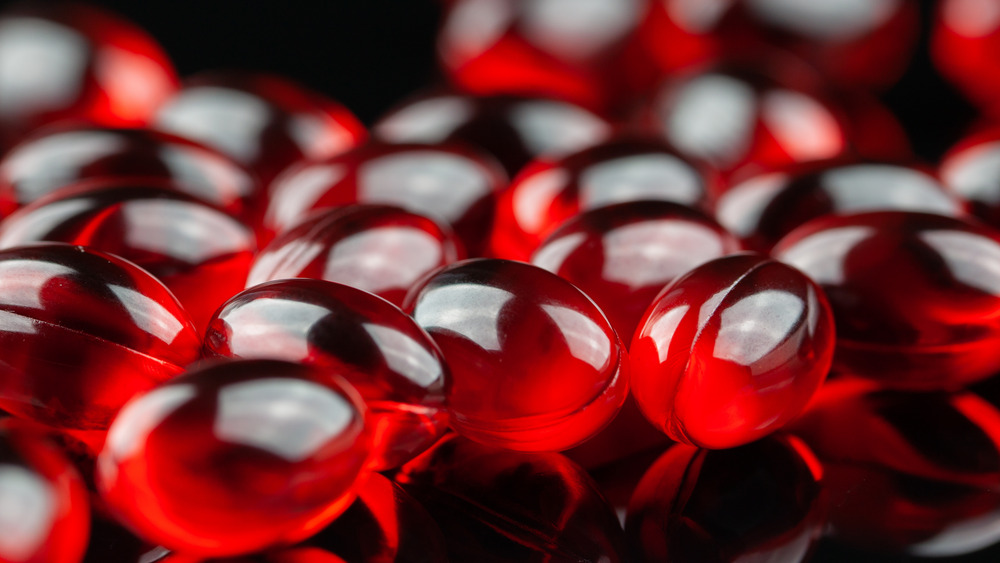The Real Difference Between Fish Oil And Krill Oil Supplements
Fish oil and krill oil supplements are both good for you because they contain omega-3 fatty acids, of which there are two types — docosahexaenoic acid (DHA) and eicosapentaenoic acid (EPA). Daily fish oil supplements can help with many parts of your health — your heart, bones, eyes, blood sugar levels, autoimmune disease flare-ups, asthma, psoriasis, PCOS, depression, and cognitive decline.
Krill oil is high in DHA and EPA omega-3 fatty acids, just like fish oil, but there are some claims that krill oil is better for you than traditional fish oil supplements. You can see the difference in color, as krill oil supplements are red and fish oil supplements are yellow-gold. They also come from different sources — fish oil comes from herring, tuna, sardines, salmon, or mackerel. Krill oil only comes from krill, a small crustacean that resembles shrimp. There is a difference in the fatty acid's structural makeup, which might be why one might be better for you than the other (via Healthline and Medical News Today).
Both fish oil and krill oil are good sources of omega-3 fatty acids, which are important for your health. Some studies claim that krill oil contains more antioxidants, and your body might absorb krill oil better. Let's take a closer look at these claims.
Is krill oil really better for you than fish oil?
Krill oil does contain more antioxidants than fish oil. Krill oil contains vitamin A, vitamin E, astaxanthin, and choline, nutrients not found in fish oil. Choline can help reduce an amino acid called homocysteine, linked to heart disease (via Well + Good).
A 2015 study with 66 healthy adults examined how the body uses krill oil EPA and DHA vs. fish oil EPA and DHA to see if one had better bioavailability than the other. They found no difference between the two. A 2020 meta-analysis of 64 different studies on how the body absorbs the fatty acids from krill oil and fish oil also found that there is no difference.
Krill oil does have more nutrients than fish oil, but they are equal in how your body absorbs and uses the fatty acids from them. Fish oil can sometimes have a fishy odor and taste, but you can take fish oil before a meal to counteract that. One other difference is that krill oil is usually more expensive than fish oil.
The best way to get omega-3 fatty acids and the health benefits that come with it is to eat two servings of fish per week, especially fatty fish like sardines, mackerel, lake trout, albacore tuna, herring, or salmon, according to the American Heart Association. But if you don't eat fish, supplements are the next best thing, whether you choose krill oil or fish oil.


